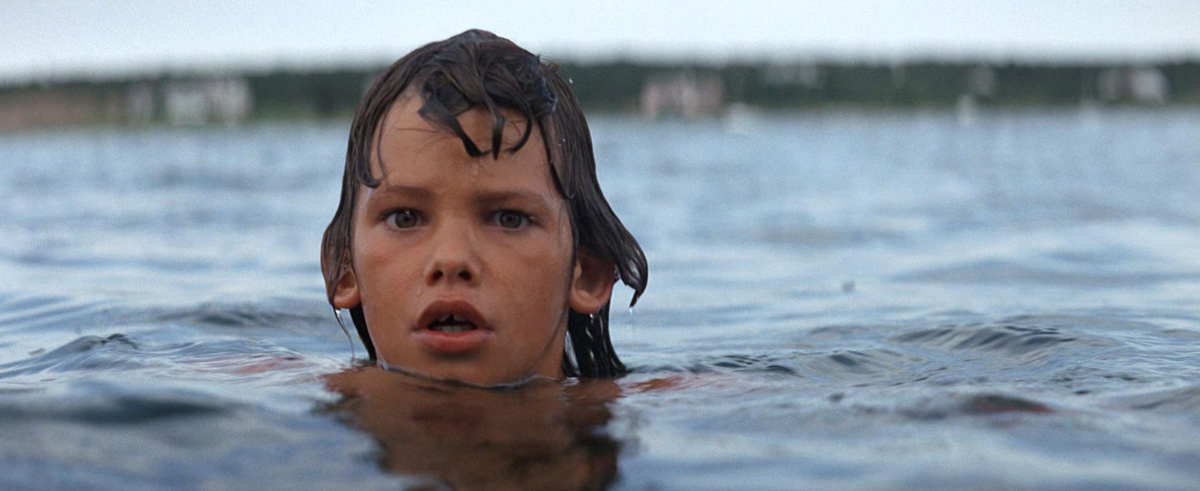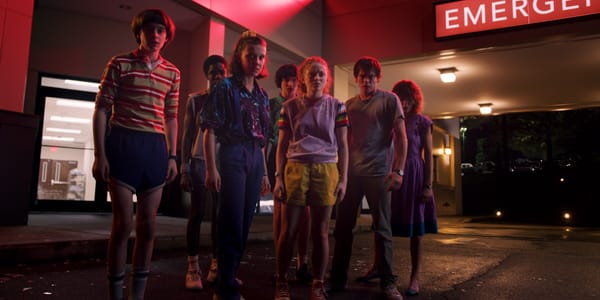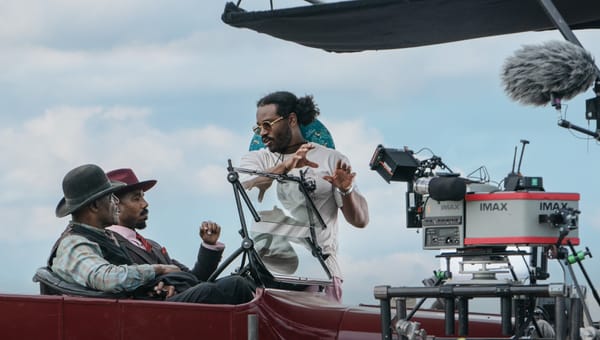Hooper Drives The Boat, Chief: Revisiting Jaws at 50
Jaws is a masterclass in suspense, storytelling, and casting. It's Spielberg’s finest and the ultimate Fourth of July classic.

Jaws (1975)
Directed by Steven Spielberg
Starring Roy Scheider, Robert Shaw, Richard Dreyfuss, Lorraine Gary, Murray Hamilton
Genre: Drama, Horror
"You're gonna need a bigger boat." - Chief Martin Brody
When I was ten, my trouble maker of a best friend (everyone has one) devised an ingenious plan: we would tell our parents we were going to see one movie (I can't remember what it was, but it was certainly a parent approved film, Herbie the Love Bug or something similarly ridiculous), but after drop off, we'd actually go to see Jaws.
I remember getting past the first hurdle (the drop off) and nervously getting up to the ticket counter. The ticket girl (a stoner teenager) did a double take when Timmy and I asked for the tickets, barely able to hand over the cash. She looked around, and with no manager in sight, she shrugged, then smiled as she gave us our tickets.
Seeing the initial shark attack in the opening of Jaws changed my life. Today, in an age of non-stop graphic violence (video games, streaming, etc), it's easy to forget just how legitimately horrifying seeing Jaws in a dark theater was back then. Here was an unseen monster rising up to viciously devour a human being alive as they screamed in shock. It was terrifying, electric and totally amazing. I was hooked.
So much has been written about director Steven Spielberg's monster movie masterpiece Jaws that, at this point, some might call the entire enterprise a complete waste of time. Of course, everyone knows the tale: a freakishly enormous great white shark decides to make the island of Amity his new buffet table, devouring swimmers and boaters alike. Like many great classics, it has been almost over-analyzed (Rear Window and 2001 also come to mind). But one of the markings of a truly great movie is that you find something fresh to enjoy with each new viewing. Jaws is one of those films.
Director Steven Spielberg has famously said that half of a director's job is casting - it's that important. Getting the right actors into the roles is critical. Spielberg hit a home run on Jaws: Roy Scheider is fantastic as police chief Brody, and Richard Dreyfus (fresh off the iconic film American Graffiti) is excellent as the nerdish scientist Matt Hooper. Spielberg reportedly offered the role of Quint to Sterling Hayden and Lee Marvin (both of whom declined), and the final casting of Robert Shaw was a master stroke.
Jaws is a near-perfect slice of entertainment, and for me, the film's first act holds up even better than the final two. It's not just a fantastic setup for the "shark vs. man" battle that pinnacles the movie's famous last act. The first act is also a battle in itself - a battle between greed and common sense concerning public safety (something that rings true today on so many levels). I'm not sure if this was something that Peter Benchley (the author of the book and the script) or Spielberg intended, but it definitely works.
The mayor of Amity wants the beaches to remain open (even though there is a human-devouring giant shark menacing the beaches) for one clear motive: profit. After the Fourth of July weekend turns into a bloodbath, police Chief Brody tells him, "Larry, the summer is over. You're the mayor of "Shark City!" These people think you want the beaches open!" Larry puffs on his cigarette and mumbles, "I was - I was acting in the town's best interest." Spielberg delivers a compelling moral battle between commerce and safety.
Of course, the rest of Jaws is what everyone else loves, starting when the grizzled shark hunter Quint makes his appearance. He scrapes his fingernails down a chalkboard at the city council meeting to get everyone's attention. He's rude yet direct to the point, advising everyone: "Y'all know me. Know how I earn a livin'. I'll catch this bird for you, but it ain't gonna be easy." Quint tells dirty jokes and makes rotgut booze. He tosses aside Hooper (the research scientist hired to help kill the shark) dismissively, telling him: "You have city hands, Mr. Hooper. You been countin' money all your life." Quint is an old-school character from the Hollywood days of yore - over the top, almost cartoonish, but his interplay with the brainy Hooper is true magic.
It is well known that the mechanical sharks used during the filming of Jaws had numerous failures. Jaws was the first big studio movie shot on the ocean, and the challenges presented because of the water caused the film to go way over budget and schedule. The shortcomings of the mechanical shark reportedly forced Spielberg to change the story structure, forcing the shark to remain hidden until later in the movie - making the flick a more suspenseful nail-biter.
Jaws is genuinely one of the most entertaining movies you will ever encounter. The theme music signaling the shark's menacing approach is iconic. It is perfectly cast and brilliantly paced. Jaws (along with Star Wars) helped to create the entire Summer blockbuster genre, and while Spielberg would go on to make a slew of fantastic movies, I don't hesitate to say that Jaws remains Spielberg's best movie, and it's not even close.
After all these years, Jaws is still one hell of a thrill ride and scarier than many give it credit. For me, this is the It's A Wonderful Life of the Fourth of July - a classic movie that merits dusting off once a year to get in the proper holiday mood. Then head on out to the beach - if you dare.




